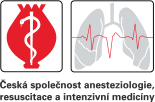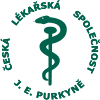Anest. intenziv. Med. 2016;27(5):284-288
Aprotinin in cardiac surgery - re-evaluation of the risks?Anaesthesiology - Special Article
- Kardiochirurgická klinika 3. LF UK, Praha
The article describes the history of introducing aprotinin into cardio-surgical clinical practice and deals with the circumstances based on the results of the BART study leading to its withdrawal from the global pharmaceutical market and with its recent re-authorization in some countries.
Keywords: cardiac surgery; fibrinolysis; fibrinolytic inhibitors; aprotinin
Received: May 24, 2016; Accepted: July 5, 2016; Published: October 1, 2016 Show citation
References
- Peters, D. C., Noble, S. Aprotinin: an update of its pharmacology and therapeutic use in open heart surgery and coronary bypass surgery. Drugs, 1999, 57, p. 233-260.
 Go to original source...
Go to original source...  Go to PubMed...
Go to PubMed... - Sodha, N. R., Boodhwani, M., Bianchi, C. et al. Aprotinin in cardiac surgery. Expert Rev. Cardiovasc. Ther., 2006, 4, p. 151-160.
 Go to original source...
Go to original source...  Go to PubMed...
Go to PubMed... - Bojanov, G., Belani, K. G. Aprotinin - an update for the peri-operative physician. Ann. Card. Anaesth., 2005, 8, p. 75-80.
 Go to original source...
Go to original source...  Go to PubMed...
Go to PubMed... - Nugent, F. W., Warren, K. W., Jonasson, H., Garciadeparedes, G. Early experience with trasylol in the treat-ment of acute pancreatitis. South. Med. J., 1964, 57, p. 1317-1321.
 Go to original source...
Go to original source...  Go to PubMed...
Go to PubMed... - Vaněk, T. Méně invazivní kardiochirurgické přístupy pro léčbu ischemické choroby srdeční - editorial. Vnitř. Lék., 2012, 58, p. 715-716.
- Wagner, R. Kardioanestezie a perioperační péče v kardio-chirurgii. Praha: Grada Publishing, 2009, p. 163.
- Royston, D., Taylor, K. M., Bidstrup, B. P., Sapsford, R. N. Effect of aprotinin on need for blood transfusion after repeat open-heart surgery. Lancet, 1987, 330, p. 1289-1291.
 Go to original source...
Go to original source...  Go to PubMed...
Go to PubMed... - Vaněk, T., Špegár, J., Šnircová, J. Antifibrinolytika v kardiochirurgii - pohled z konce prvního desetiletí nového milenia. Cor. Vasa, 2010, 52 (Suppl 1), p. 48-51.
 Go to original source...
Go to original source... - Levi, M., Cromheecke, M. E., de Jonge et al. Pharmacological strategies to decrease excessive blood loss in cardiac surgery: a meta-anylysis of clinically relevant endpoints. Lancet, 1999, 354, p. 1940-1947.
 Go to original source...
Go to original source...  Go to PubMed...
Go to PubMed... - Carless, P. A., Moxey, A. J., Stokes, B. J. et al. Are antifibrinolytic drugs equivalent in reducing blood loss and transfusion in cardiac surgery? A meta-analysis of randomized head-to-head trials. BMC Cardiovasc. Disord., 2005, 5, p. 19.
 Go to original source...
Go to original source...  Go to PubMed...
Go to PubMed... - Alderman, E. L., Levy, J. H., Rich, J. B. et al. Analyses pf coronary graft patency after aprotinin use: results from the International Multicenter Aprotinin Graft Patency Experience (IMAGE) trial. J. Thorac. Cardiovasc. Surg., 1988, 116, p. 716-730.
 Go to original source...
Go to original source...  Go to PubMed...
Go to PubMed... - Poston, R. S., White, C., Gu, J. et al. Aprotinin shows both hemostatic and antitrombotic effects during off-pump coronary artery bypass grafting. Ann. Thorac. Surg., 2006, 81, p. 104-111.
 Go to original source...
Go to original source...  Go to PubMed...
Go to PubMed... - Vaněk, T., Jareš, M., Straka, Z. Aprotinin reduces troponin I levels in OPCAB. Ann. Thorac. Surg., 2006, 82, p. 1950-1951.
 Go to original source...
Go to original source...  Go to PubMed...
Go to PubMed... - Henry, D. A., Carless, P., Moxey, A. et al. Antifibrinolytic use for minimizing perioperative allogenic blood transfusion. Cochrane Database Syst. Rev., 2007, CD001886.
 Go to original source...
Go to original source... - Karkouti, K., Beattie, W. S., Dattilo, K. M. et al. A propensity score case-control comparison of aprotinin and tranexamic acid i high-transfusion-risk cardiac surgery. Transfusion, 2006, 46, p. 327-338.
 Go to original source...
Go to original source...  Go to PubMed...
Go to PubMed... - Mangano, D. T., Tudor, I. C., Dietzel, C. The risk associated with aprotinin in cardiac surgery. N. Engl. J. Med., 2006, 354, p. 353-365.
 Go to original source...
Go to original source...  Go to PubMed...
Go to PubMed... - Fergusson, D. A., Hébert, P. C., Mazer, D. et al. A comparison of aprotinin and lysine analogues in high-risk cardiac surgery. N. Engl. J. Med., 2008, 358, p. 2319-2331.
 Go to original source...
Go to original source...  Go to PubMed...
Go to PubMed... - European Medicines Agency - Assesment report. Antifibrinolytics containing aprotinin, aminocaproic acid and tranexamic acid. EMA/590581/2013, Procedure number: EMEA/H/A-1267.
- Hébert, P. C., Fergusson, D. A., Hutton, B et al. Regulatory decisions pertaining to aprotinin may be putting patients at risk. CMAJ, 2014, 186, p. 1379-1386.
 Go to original source...
Go to original source...  Go to PubMed...
Go to PubMed... - Hutton, B., Lawrence, J., Fergusson, D., Mazer, C. D., Shapiro, S., Tinmouth, A. Risks of harms using antifibrinolytics in cardiac surgery: systematic review and network meta-analysis of randomised and observational studies. BMJ, 2012, 345, e5798 doi: 10.1136/bmj.e5798.
 Go to original source...
Go to original source...  Go to PubMed...
Go to PubMed... - Meybohm, P., Herrmann, E., Nierhoff, J., Zacharowsky, K. Aprotinin may increase mortality in low and intermediate risk but not in high risk cardiac surgical patients compared to tranexamic acid and ε-aminocaproic acid - A meta-analysis of randomised and observational trials of over 30.000 patients. PLoS One, 2013, 8, e58009 doi: 10.1371/journal.pone.0058009.
 Go to original source...
Go to original source...  Go to PubMed...
Go to PubMed... - Walkden, G. J., Verheyden, V., Goudie, R., Murphy, G. J. Increased perioperative mortality following aprotinin withdrawal: a real-world analysis of blood management strategies in adult cardiac surgery. Intensive Care Med., 2013, 39, p. 1808-1817.
 Go to original source...
Go to original source...  Go to PubMed...
Go to PubMed...





